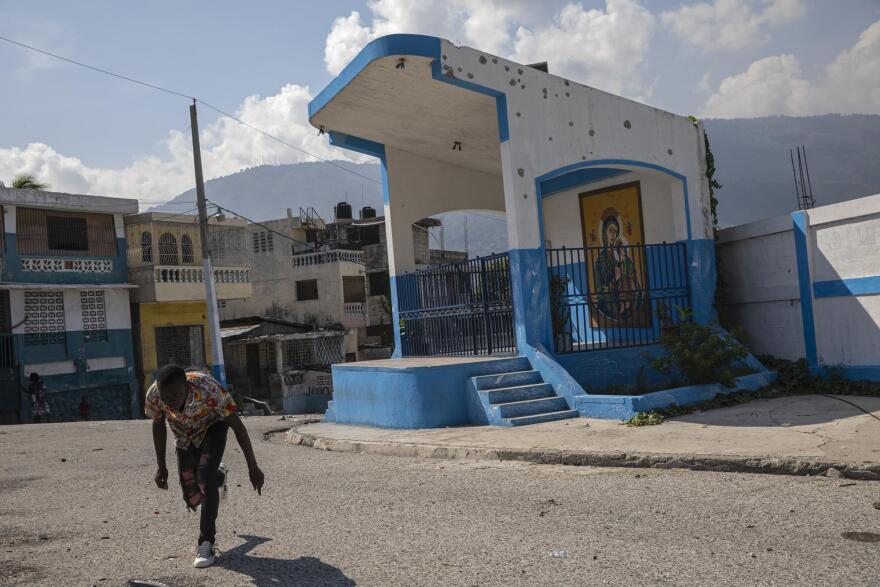On Sunday a Baptist deacon was murdered and his wife kidnapped by one of Haiti’s street gangs — an atrocity that raised fears among Haitians that those criminals are becoming their de facto rulers.
Armed bandits burst into a service at the First Baptist Church in Port-au-Prince and fatally shot Deacon Sylner Lafaille then kidnapped his wife Marie Laurent for an undisclosed ransom.
That violence is commonplace in Haiti today as warring gangs take over whole districts of cities like Port-au-Prince. Thousands of Haitians have been displaced from their homes because of their marauding conflicts.
Haiti’s government and police are too weak to confront them — or choose not to, say critics who claim the gangs are affiliated with political parties.
“The problem we have, it’s the ascendance of what we call the 'legalized bandit,'" said Julio Warner Loiseau, who heads the youth assistance nonprofit Nouvelle Perspective in Port-au-Prince.
"And we are all afraid. After 5 pm, people don’t walk in the street — they hide. It's not the government setting the curfew, it's the legal bandits.”
Warner Loiseau earned a PhD in public policy in the U.S., and he says the big fear is that gang leaders like Jimmy Cherizier — a former cop called “Barbecue” — are more powerful than any Haitian authority.
“At some point we believe those gangs, they will besiege the National Palace and everybody will do whatever the bandit wants you to do.”
Warner Loiseau is active with Haitian civil society organizations proposing a transitional government to salvage Haiti's public security and democracy. One of their emphases is halting the weapons trafficking from outside Haiti that is fueling the gang dominance.
Haitian Prime Minister Ariel Henry said this week he wants to hold a constitutional referendum as well as presidential and parliamentary elections early next year. But that may be impossible if public security keeps collapsing.
U.S. Assistant Secretary of State for Western Hemisphere Affairs Brian Nichols is visiting Haiti this week to discuss the crisis.
Copyright 2021 WLRN 91.3 FM. To see more, visit WLRN 91.3 FM.




